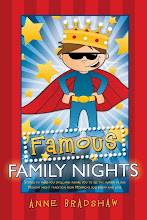by Nichole Giles
This weekend I watched the movie, “Becoming Jane,” which is based on the life of author, Jane Austen. In a particular scene, Jane is inspired by something that’s said and excuses herself mid-conversation to go write down the words. As she sits and pulls out her lead and paper, the woman—a ‘Lady’ of wealth—and man—the wealthy woman’s nephew—with whom Jane had been conversing have a small exchange that goes something like this:
Lady: “What’s she doing?”
Nephew: “Writing.”
Lady: “Can anything be done about it?”
Nephew grins and shrugs.
While watching this show, I had to laugh at the situation because it is such a spot on scenario in my own life. It truly can’t be helped, and my answer to the ‘Lady’ is, no, nothing can be done about it.
As authors and writers, we often tend to take in fine points of conversations and surroundings that others easily dismiss. These are the words and details that usually end up in our stories or other writing.
Is it because we’re hyper-aware? Or because we pay closer attention to the details of life? Maybe both. Or maybe our brains are constantly on overdrive as we do our best to go through life thinking around and through the voices in our head. Because for some of us, those voices are always there, and often loudest when we’re trying to close down and have a quiet moment. They hound us as we sleep at night, as we sit in church meetings, drive in our cars, sit on our back porch enjoying the family, during vacations, and sometimes as we attempt to meditate.
So when you ask yourself (or when someone else asks you) “Can anything be done about it?” here’s a possible solution: don’t ignore inspiration. Pull out your handy-dandy notebook (which you should always have nearby) and use it as a filter. By writing down the random lines, thoughts, and impressions as often as they come, we can better pay attention to other things going on around us.
Inspiration can be a terrible inconvenience—and it may take some training, but we can teach ourselves to keep those precious moments of clarity while still continuing through our daily lives with work, family, friends, and other obligations. We don’t have to give up one for the other. Instead, we simply learn how best to capture those moments while we continue to be present in the here and now.
And when you stop mid-conversation to snag a pen and write a few lines on your hand, your relatives and friends will eventually stop asking, “What’s she doing?”
They’ll automatically know you’re writing and that it’s okay. You’ll write down one or two lines, and jump right back into visiting.
Such is the life and reputation of a writer. And personally, I think it’s grand.
This weekend I watched the movie, “Becoming Jane,” which is based on the life of author, Jane Austen. In a particular scene, Jane is inspired by something that’s said and excuses herself mid-conversation to go write down the words. As she sits and pulls out her lead and paper, the woman—a ‘Lady’ of wealth—and man—the wealthy woman’s nephew—with whom Jane had been conversing have a small exchange that goes something like this:

Lady: “What’s she doing?”
Nephew: “Writing.”
Lady: “Can anything be done about it?”
Nephew grins and shrugs.
While watching this show, I had to laugh at the situation because it is such a spot on scenario in my own life. It truly can’t be helped, and my answer to the ‘Lady’ is, no, nothing can be done about it.
As authors and writers, we often tend to take in fine points of conversations and surroundings that others easily dismiss. These are the words and details that usually end up in our stories or other writing.
Is it because we’re hyper-aware? Or because we pay closer attention to the details of life? Maybe both. Or maybe our brains are constantly on overdrive as we do our best to go through life thinking around and through the voices in our head. Because for some of us, those voices are always there, and often loudest when we’re trying to close down and have a quiet moment. They hound us as we sleep at night, as we sit in church meetings, drive in our cars, sit on our back porch enjoying the family, during vacations, and sometimes as we attempt to meditate.
So when you ask yourself (or when someone else asks you) “Can anything be done about it?” here’s a possible solution: don’t ignore inspiration. Pull out your handy-dandy notebook (which you should always have nearby) and use it as a filter. By writing down the random lines, thoughts, and impressions as often as they come, we can better pay attention to other things going on around us.
Inspiration can be a terrible inconvenience—and it may take some training, but we can teach ourselves to keep those precious moments of clarity while still continuing through our daily lives with work, family, friends, and other obligations. We don’t have to give up one for the other. Instead, we simply learn how best to capture those moments while we continue to be present in the here and now.
And when you stop mid-conversation to snag a pen and write a few lines on your hand, your relatives and friends will eventually stop asking, “What’s she doing?”
They’ll automatically know you’re writing and that it’s okay. You’ll write down one or two lines, and jump right back into visiting.
Such is the life and reputation of a writer. And personally, I think it’s grand.

















4 comments:
Totally relate and, yes, I think it's grand as well.
Loved this Nichole! I definitely want to see this movie. :)
It is grand! It's completely grand!
I second you several times over (does that make it thirding and fourthing?) Nothing can be done about it. Especially not if we want to become as talented at Jane Austen.
I so have to buy that movie.
Post a Comment